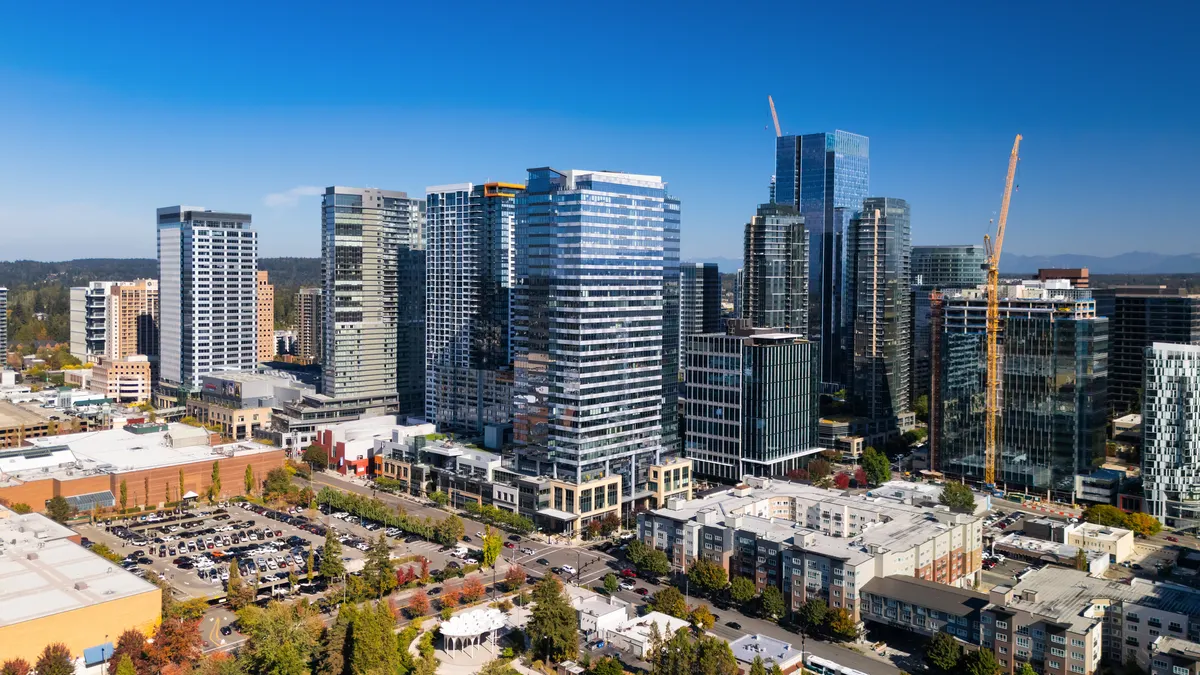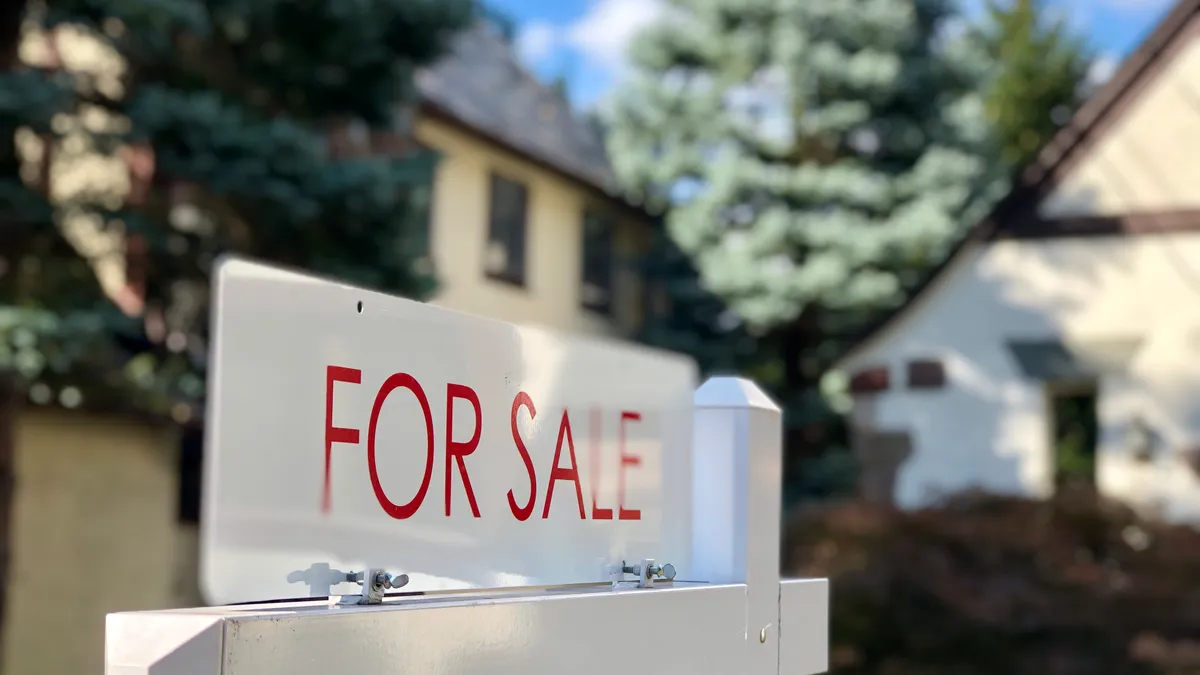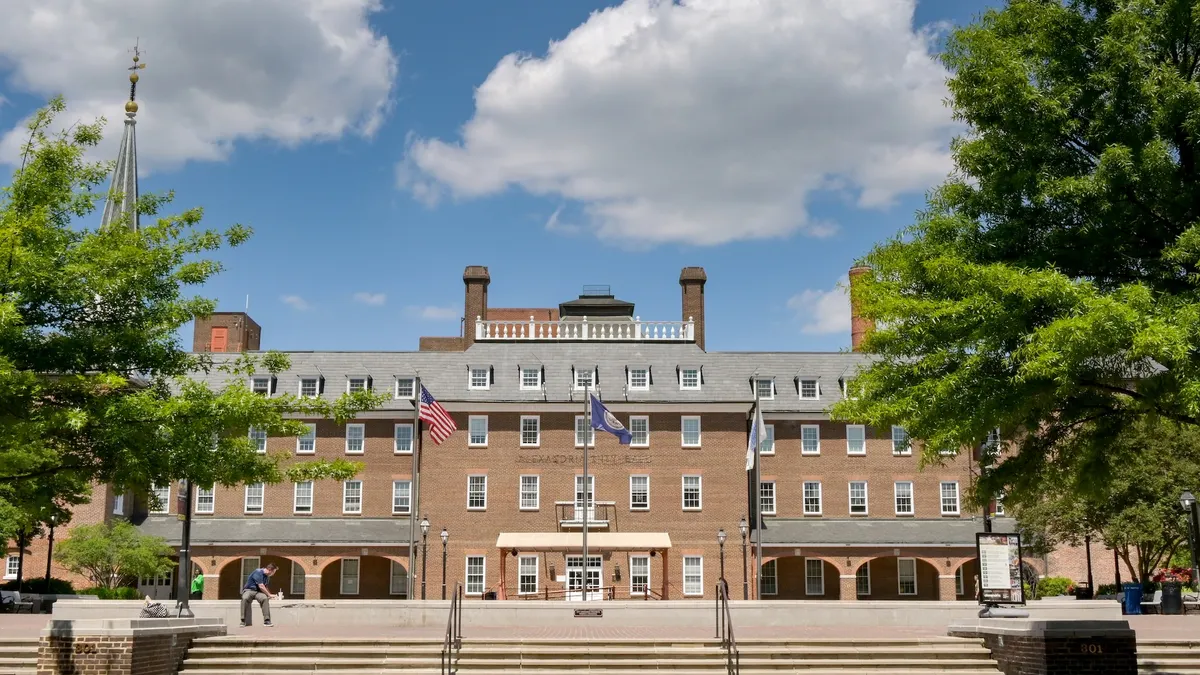When Danielle Harris began her career at the San Francisco Municipal Transportation Agency (SFMTA) in 2007, she mirrored "Game of Thrones" protagonist Jon Snow: determined and scrappy, yet naive, as she juggled the challenge of advancing city innovation while bound by red tape.
After more than a decade at SFMTA and a leadership seat in the agency's Office of Innovation, Harris gained a powerful weapon: understanding the dichotomy of public- and private-sector operations, and knowing how to strategically work with both sides to foster creative change.
In that time, Harris' "Thrones" likeness shifted to that of Tyrion Lannister: an empathetic and quick leader who knew how to best tame the Dragon Queen. In mid-2019, Harris brought her strategic thinking to Elemental Excelerator, a nonprofit organization designed to help growth-stage startups unlock funding and improve systems that impact energy, water, food & agriculture and mobility. As the Director of Mobility Innovation, Harris is now working with up-and-coming vendors to help them navigate the battlefield of public sector planning.
Smart Cities Dive caught up with Harris to recount her journey in the smart city space and gain perspectives on how she believes cities and companies can one day land on the throne of innovation.
SMART CITIES DIVE: What was your inspiration for getting involved in urban innovation, starting back with the SFMTA?
DANIELLE HARRIS: I focused on community design, so I had a number of community-based plans, working in the Western Addition and the Bay View in San Francisco, which are predominantly black neighborhoods. And I was trying to change things that I thought were obvious. We have a whole Vision Zero initiative and all the collisions are in these neighborhoods, and so I'm seeking funding to put in crosswalks — the quick and easy things. And they're like, "No, we don't have funding for that" ... And then, the Smart Cities Challenge came out from the USDOT [in 2016] led by Anthony Foxx. And it was one of those things where if San Francisco doesn't apply, what does that say?
So, we kind of sat on it for a while, and then Tim [Papandreou, director of innovation at SFMTA] was like, "Well, I need help to do this." And everyone said, "Nah, it's this crazy, whimsical animal, I don't want to spend the time." And I looked at innovation and I was like it may be a crazy, whimsical animal, but it's people that are willing to move fast, make change, and really address policy, which is really what I was trying to do. Policy from the ground up. Innovation, the way that we were looking at the agency, was from the top down. It was an all-hands type of situation ... And that's something that's really hard with a massive MTA is to get everybody to the table. I equate it to "Game of Thrones": everybody's into their own fiefdom.
"I equate it to 'Game of Thrones': everybody's into their own fiefdom."

This is exactly the vessel that's going to allow me to make the change that I want because everyone's excited about it, it moves fast, and it's really major change, it's not just tweaking the edges. That's really how I got to innovation. It was a little hard for me emotionally and within my social group because I work with a lot of mobility justice groups and they were like, "How could you just trade us out and go after the bright shiny toy?" and I was like, "No, the bright shiny toy is our spaceship."
What inspired your shift away from public sector into what you're doing now at the Elemental Excelerator?
HARRIS: I created what the [SFMTA] Office of Innovation did. Every city was having an Office of Innovation. And I don't think anyone had laid out a blueprint of what they do. I've been in the agency since 2007. I've worked in almost every single group. There are some consistent challenges. I built it understanding that the biggest thing stopping us from moving forward is our emotions. Internally, we need to trust each other. Externally, we need to be open and to embrace the discomfort and fear that comes with the big massive change in working with a completely new entity that's never been on your table before.
So that's where my partner in crime at the time, Warren Logan, we created Tech Relations and we went and we met with all the different companies and we built relationships to be like, "Tell us about your tech, let's start a conversation on a different foot," rather than just being a regulator that says you're bad and you're ruining everything... And then internally, I would just kind of go to all my different friends from different groups that I had worked with over the years and ask, "So is this still a problem? Is this still a problem?"
"I looked at Elemental as like, I could be Tyrion Lannister and I could work with the Dragon Queen and hope that she does good things and guide her that way, and bring everyone to the table. Shared pain, ya know?"

We call it "adapt, adopt." I've adapted it, it is proven and it works — reduce the crowd for Outside Lands San Francisco from two hours of crowd to 40 minutes — so I was like, "Adopt it, special events team!" And I think I ran out of patience ... You can't waste time. And that was the thing. You have to move fast, there's another special event.... So that was a big piece of it.
I felt that Elemental really focused on the soft and squishy, getting to the feels. I used to say I was Jon Snow letting the wildlings into the agency, and I was getting knifed pretty badly. And then I looked at Elemental as like, I could be Tyrion Lannister and I could work with the Dragon Queen and hope that she does good things and guide her that way, and bring everyone to the table. Shared pain, ya know? These White Walkers are coming — single-occupancy vehicles, GHG, climate change. And we can have a collective conversation about that.
So that's really how I looked at Elemental. We have our partnership with corporates, we're working with government, and then we have a community-based organizations and then we have our startups. And those are the people we want to dream here. We need imagination. Government's not good at that.
What has been the value of working with startups? And on the other hand, the challenges that you face when you're working with folks that maybe don't have the funding or the experience needed to make their ideas come to life?
HARRIS: I think for me, I appreciate their optimism. My first day at Element, I was like, I can't tell you how crazy it is to be here. This is a Yes Space. I'm coming from 10 years at a No Space. It's always like "Yes, and" or, "Oh ok, well how might we?" And I love that piece of startups because if you start at a No Space, you're not going to get very far and you really have to focus on the fact that everyone is saying that they want change, but no one on the city side is really understanding to what capacity, what that takes.
That's what I appreciate about startups. They're like "Well, they said no, OK so let's go over here." In that respect, I feel like I had startup within SFMTA, because I would figure out and chase the Nos ... But the biggest part for me is I like that the startups are doing the, "Why is it a no? And is there another business case to be made there?" I think they can see the the forest from the trees, which I really appreciate.
How have your experiences in the public sector helped you so far at Elemental?
HARRIS: I had one company saying they were going for an RFP interview, and I was like, "You know, that shiny suit that makes you look really good? Don't wear that. It makes them uncomfortable." Things as simple as that. Ultimately, these are the barriers that they are perceiving, and helping them navigate like, what's a soft yes? And a soft no vs. a hard no, and really finding the flexibility of it. The reality is, the folks in government, they are extremely bright, they want to change. They just know intimately all the red tape. And they will dream with you if you come to their side and you can look from their perspective.
I think the big thing I get from the tech space is, "Government is really stupid and they move slow and they're ruining our lives." And I think it's an empathy exchange. I think governments needs to understand why startups need to move fast. But it's also we're just on completely different metrics. Government wants to be stable.
Elemental highlights 'catalyzing collaboration.' What do you think the key ingredient to a good partnership and good collaboration is?
HARRIS: I think that is the most vague piece within smart cities. That's the piece that doesn't get a lot of attention. I think everybody is like, here's a shiny new doo-dad, and you have these sexy new toys and tools and that's where most people want to lead. And then on the other side of the pendulum is hard regulatory restrictions. The partnership is really what's supposed to bridge that. It's just that there is no formal discussion of what that looks like.
"...Government's like, I don't want to meet on the last day of Coachella, and then startups are like, I'm not trying to get the ring right away, don't wife me yet, boo!"

I equate it to — disruption is like the last night of the last show of Coachella. And you meet that someone, and you're probably inebriated, plus some. That may not be the best way to meet your mate. Then, government wants the ring the next day. You've committed a long-term contract of three years or more. But like whoa, we haven't even had coffee yet! And so I think that's the thing — government's like, I don't want to meet on the last day of Coachella and then startups are like, I'm not trying to get the ring right away, don't wife me yet, boo!
So I think there needs to be a space where it's like, let's have coffee. Like a proof of concept authorization where it's I just want to feel out what you're tech is. And then I want you to introduce it to the people. And then gradually go from there. And that's what I think partnership allows.
What would be your advice to a young person who's hoping to bend the rules a bit and think outside the box when it comes to innovation, specifically in local governments?
HARRIS: I was what they call the super intern at the SFMTA which means that I did four summers. So I had basically over a year's worth of intern experience. So a lot of it comes down to management, in my mind, but it also comes down to the initiative of the intern. I think I make it very clear that I want a sponge. I want somebody that's willing to absorb everything. Coming into this space and seeing everything that's wrong is not going to be something that gets you to innovation. Because you only focus on what's wrong. But you want to keep what's good, and then adapt where it can be improved. And I think that's where you have to be willing to listen and understand.
Who in 'Game of Thrones' do you most identify with?
HARRIS: I'm not as naive as John Snow, though I was at first. I like Tyrion Lannister because of his level of empathy. He had been within a really prestigious family and had all of these things, but then he had slummed it. I think being a runt within a royal family is definitely somewhat of how I felt being at the agency, and that's really how I operated for a really long time, and it wasn't until someone really shook me and was like, you have this great knowledge that you can apply to help people. And that was kind of what Lord Varys did. Actually, Warren calls himself Varys. Of course we're a Motley team.
So yeah, I very much still think I'm Tyrion Lannister. Tyrion was extremely hurt when he saw the Dragon Queen kind of show her true colors and I definitely have had those moments with companies, for sure. But I've also had those moments with governments. But I feel like I'm always this optimistic body that's like, "I know that you can do good."




















